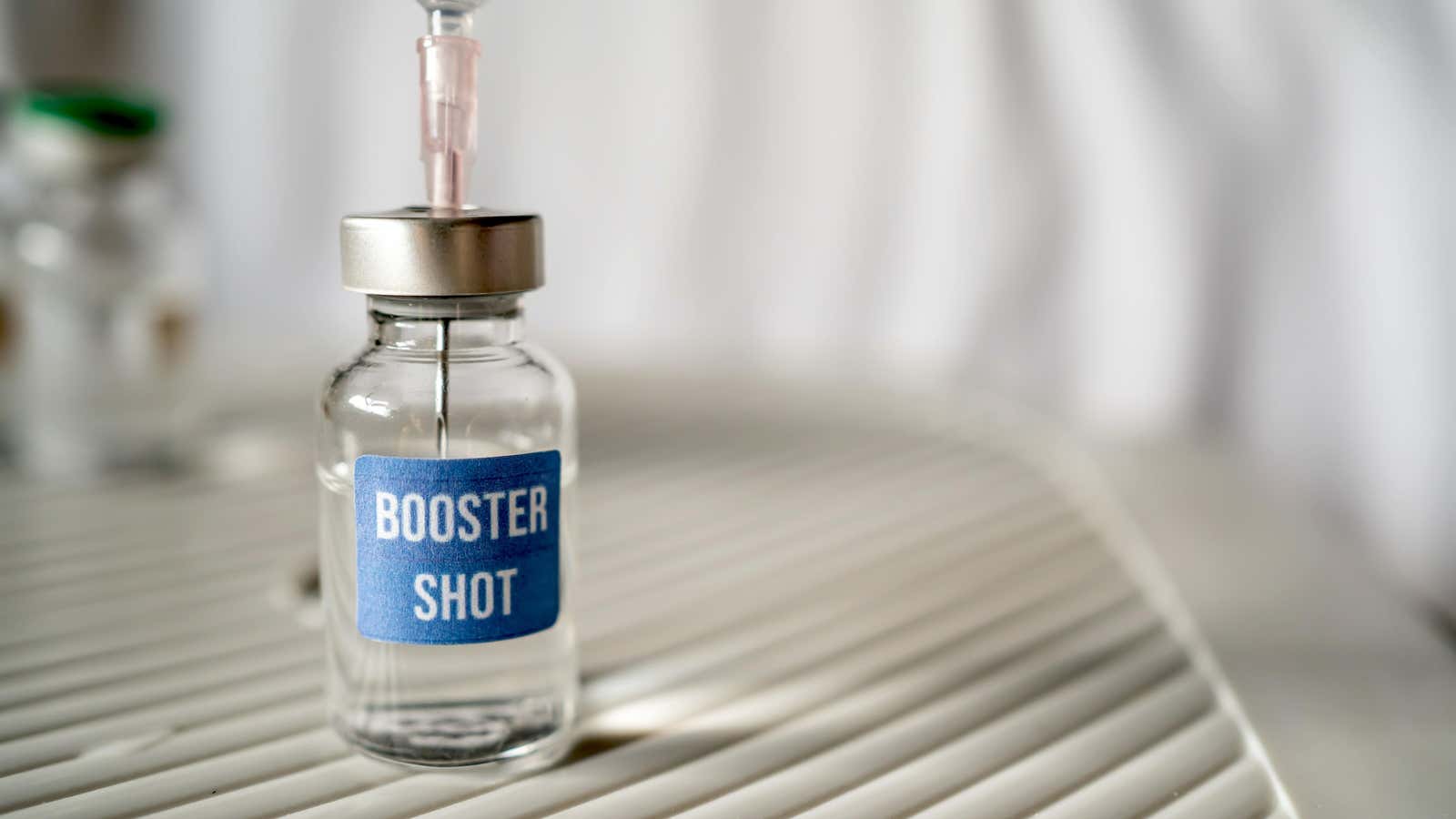What Is the Difference Between a Third Dose and a COVID Booster?

Booster doses of the COVID-19 vaccine may be available this fall , depending on what data is available and what decisions are made by government officials. On the other hand, third doses are already available for people with weakened immune systems . So what’s the difference?
The difference in medical terminology is that the revaccination occurs somewhere, usually a year or more, after you have received the vaccine and developed immunity. The idea behind the booster is to “boost” your immunity when it starts to weaken.
Alternatively, the vaccine can be administered primarily in a series of doses. The two-dose COVID vaccines (Pfizer and Moderna) are not the only ones being produced in batches. Many childhood vaccines work too: according to the CDC’s vaccination schedule, the measles, mumps and rubella (MMR) vaccine takes two doses, rotavirus two or three, polio three, and there are many more. Babies develop their immune systems, so they often need more doses than older children or adults. Children who receive the flu vaccine for the first time should receive two doses , while those who have been previously vaccinated or who are 8 years old at the time of their first flu shot may receive a single dose.
As soon as your body has a chance to develop immunity from the vaccine, the primary series is over. If you later need another dose of the same vaccine, this will be a booster shot. For example, you should get the tetanus shot (or the Tdap vaccine) every 10 years. People who have been vaccinated against meningitis may need booster vaccinations every few years if they are at high risk.
The COVID supplemental vaccine for people with weakened immune systems is considered the third dose in a series of primary vaccines, as two doses are not always sufficient to provide protection. After receiving the first two doses three or four weeks apart (depending on whether it was Pfizer or Moderna), the third dose is given four weeks after the second.
Boosters, on the other hand, can be offered six months or a year after the initial vaccination, whether that initial series was two doses or three. (Until recently, the discussion of boosters has mainly centered around mRNA vaccines, but J&J single-shot boosters may also be on the horizon.) The idea is that the original series of shots gave you good protection, and that protection is fading away, your immune system could need strengthening.